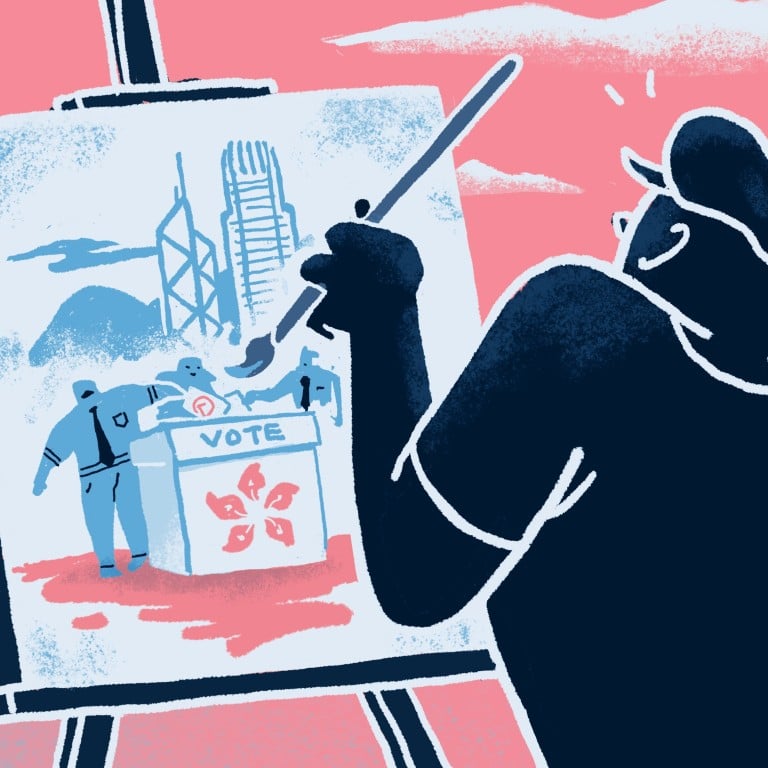
Hong Kong elections: is Macau a harbinger of city’s political future? Only 2 opposition faces in local polls for 1,500-strong Election Committee
- Analysts have noted that under a Beijing overhaul of Hong Kong’s electoral system, the political landscapes of both cities look more similar than ever
- Some argue that there is new space for centrists, while others say the only winners are establishment loyalists
In the second of our three-part series on the Election Committee polls this Sunday, the Post looks at the near-total wipeout of opposition members in the powerful body, portending the future of the legislative elections. Read part one and three.
Tiny Macau built its global reputation and economy on the backs of gleaming towers dedicated to round-the-clock gambling, all while steered by a government operating free of the firebrand activism long the hallmark of politics in neighbouring Hong Kong.
The contrasting nature of the two cities was summed up neatly by Li Zhanshu, China’s No 3 official, during a landmark visit to Macau in December 2019.
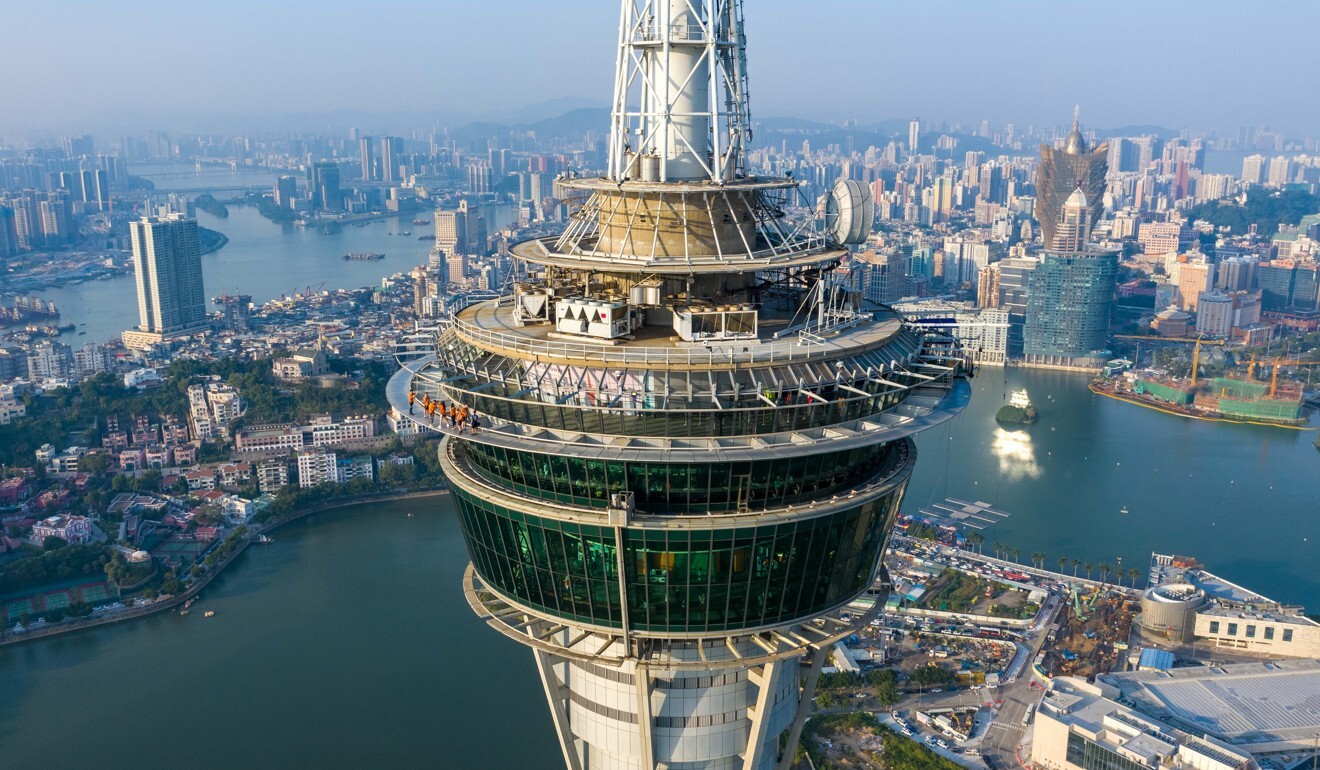
Macau residents headed to the polls on Sunday for its Legislative Council elections and delivered a result that could be a harbinger of things to come for Hong Kong and the shape of its opposition politics, they said.
Beijing exerts its hand in Hong Kong’s elections
Ahead of the elections, Macau had disqualified 21 dissenting candidates. On the actual day of the polls, three candidates who were not aligned with the pro-establishment camp won seats in the 33-member council.
Hong Kong meanwhile is gearing up for this Sunday’s polls – the first under its revamped electoral system – to select members of the 1,500-strong Election Committee. This will be followed by the Legco elections in December and the chief executive race in March next year.
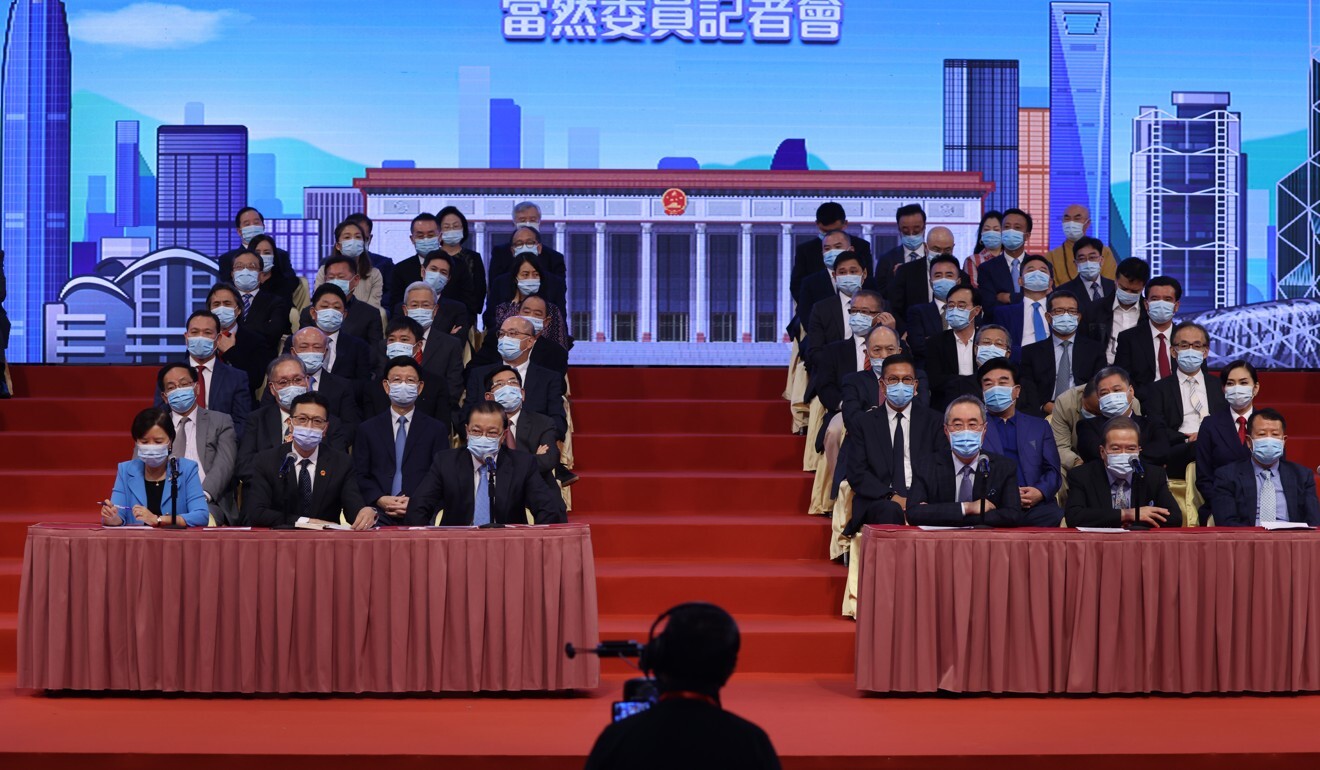
Macau as a mirror
Amid deep disenchantment with the space politicians who are sharply critical of Beijing might have in governing Hong Kong, the results in Macau have been interpreted by some analysts as sketching out one possible way forward for how a centrist camp might find a role in a deeply polarised city.
“It shows that there is still a certain market for them,” said Lau Siu-kai, vice-chairman of Beijing’s semi-official think tank, the Chinese Association of Hong Kong and Macau Studies.
More than 5,000 ballots were left blank or spoiled, including about 2,000 scrawled with curse words or the last name of Sulu Sou Ka-hou, one of the most prominent faces of Macau’s opposition movement who was among those disqualified.
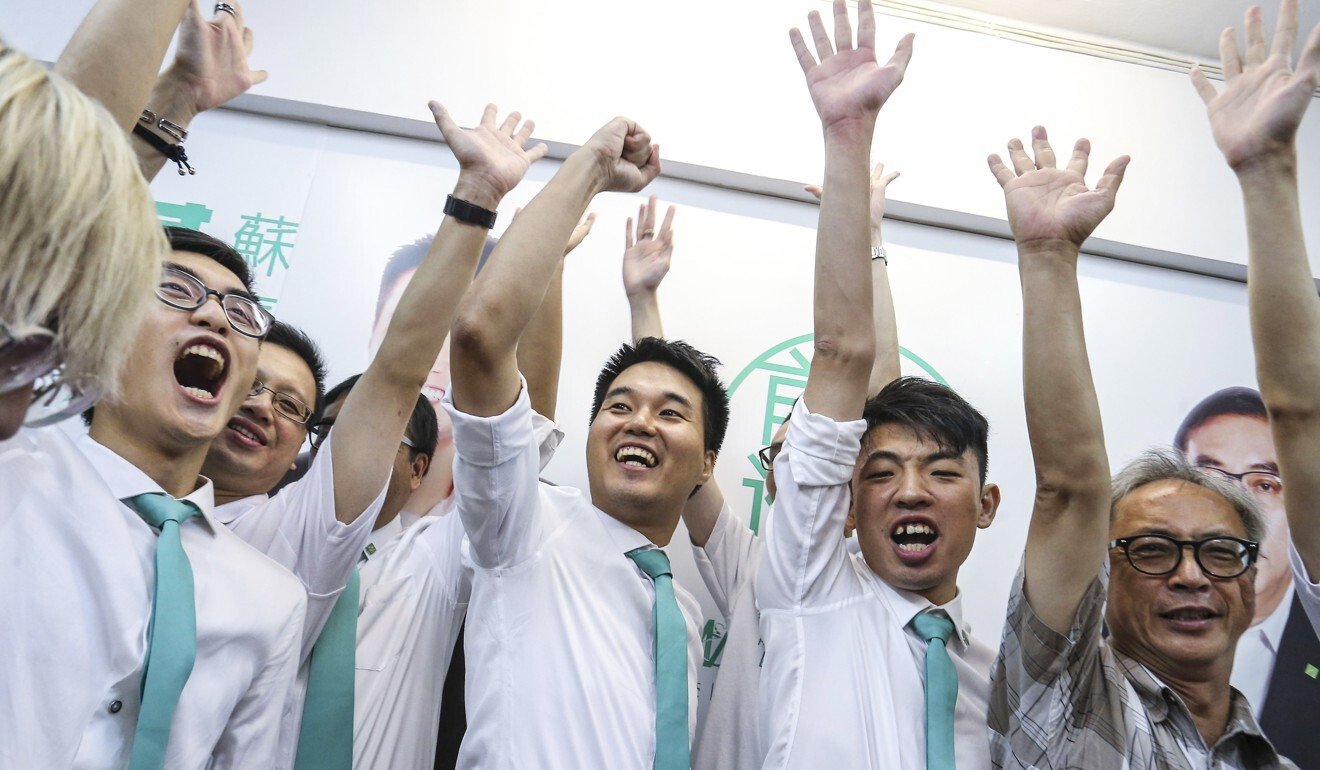
Turnout was also down by 15 per cent over the figure in 2017, with about 137,300 or 42 per cent of the city’s 323,900 registered voters heading to the polls.
Eilo Yu Wing-yat, an associate professor at the University of Macau’s department of government and public administration, was less optimistic than Lau over what Sunday’s results meant for the viability of diversified politics, whether in his own city or in Hong Kong.
He noted candidates from outside the pro-establishment camp had previously occupied five seats. Support for the established opposition in the past had not flowed entirely to the politicians who were given the green light to run, he argued.
“Both the opposition and centrist candidates are the biggest losers in this election,” Yu said.
Hong Kong police ‘to deploy 4,000 officers’ to ensure smooth Sunday polls
In its revamp, Beijing gave Hong Kong’s Election Committee, originally tasked with selecting the chief executive, even greater influence over the city’s political affairs. The pro-establishment camp has historically dominated the body, and 300 seats were added in a new “patriotic” sector, taking the overall number to 1,500. The committee will also select 40 members for Legco, with some or all to come from within its ranks.
Although bigger, the committee has fewer spots up for grabs. Only 4,900 voters are expected to cast ballots on Sunday for 364 seats being contested after the remaining slots either did not attract enough candidates to trigger a race, or were already reserved for ex officio members.
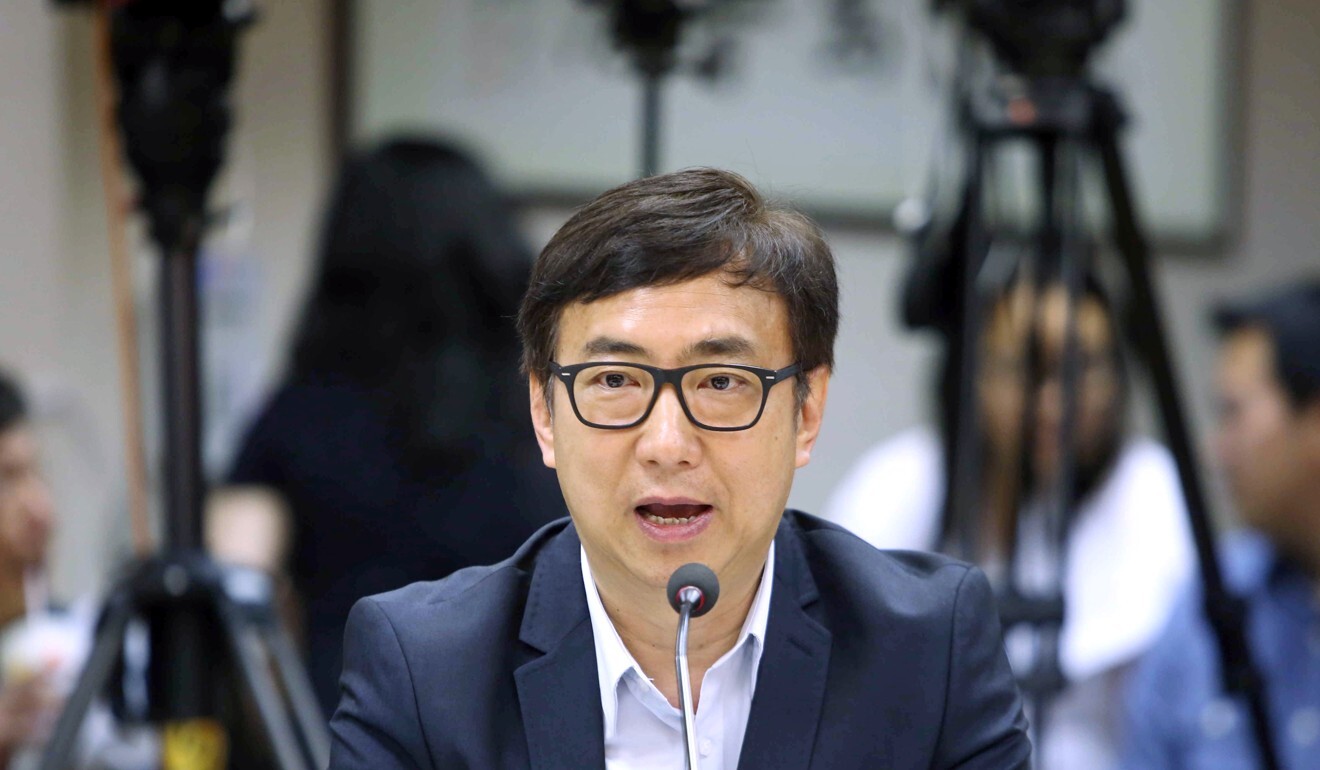
At least two candidates coming from backgrounds outside pro-establishment circles – social workers Tik Chi-yuen and Francis Chow Yin-ming – managed to pass a vetting process that evaluates hopefuls’ loyalty to Hong Kong and the Basic Law, the city’s mini-constitution.
Cheng Chung-tai, who as a lawmaker would have joined the committee as an ex officio member, did not survive the scrutiny after the review group ruled he could not be relied upon to meet those commitments. He was also disqualified from Legco, the final opposition lawmaker to head to the exit.
Both Tik and Chow will be competing in the social welfare subsector, one of just 13 being contested, out of a total of 40.
Tian Feilong, an associate professor at Beihang University’s law school in Beijing, said the race showed that moderate pro-democracy candidates and “loyal opposition” were still welcome, paving the way for others to take their cue and run in December’s Legco elections.
But Lau, from the semi-official think tank, earlier cautioned that even if opposition candidates found themselves ticking all the boxes on Beijing’s checklist, they could still face an uphill battle in convincing voters who previously backed the established opposition bloc.
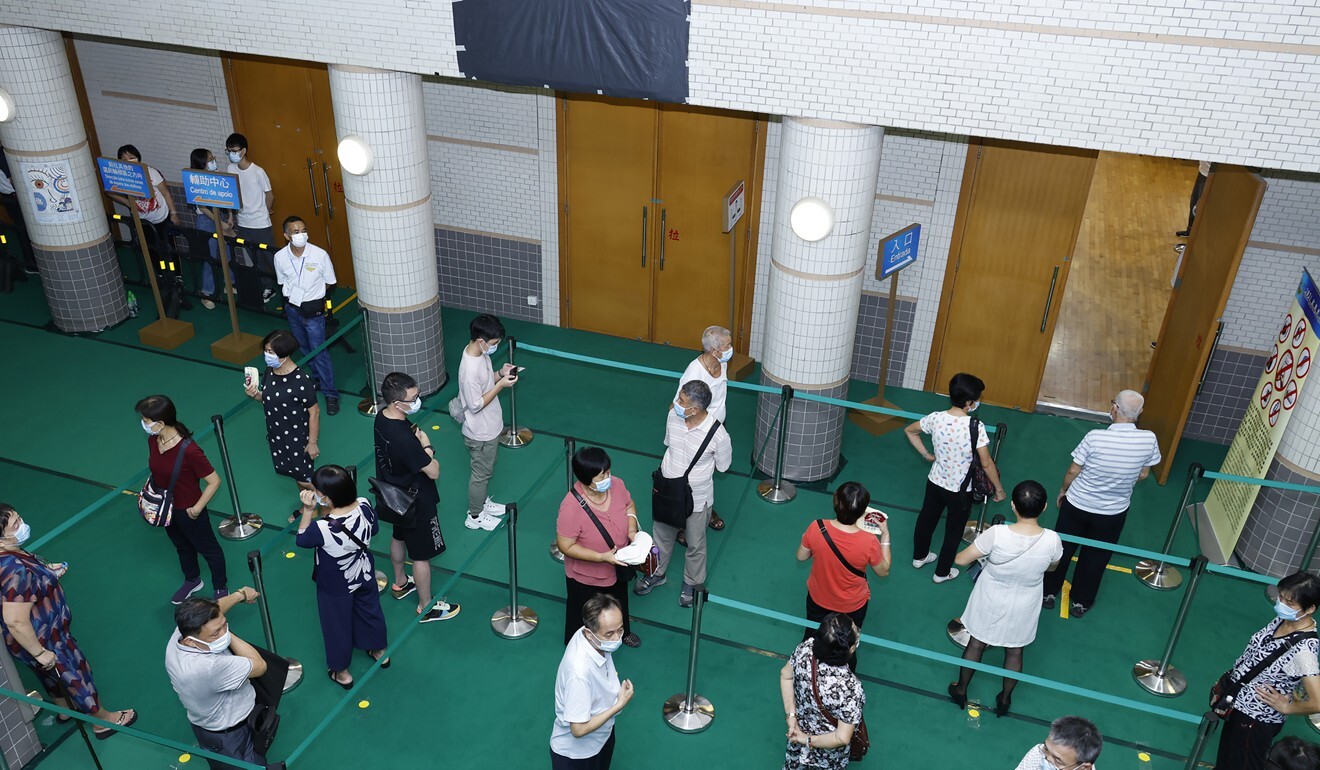
The three candidates successful in Macau on Sunday were Jose Coutinho and Che Sai-wang, from the pro-democracy Nova Esperança – or New Hope – party, and Lam U-tou, from the political think tank Associação da Sinergia de Macau and who identified as an independent.
Following the results, Lau offered a fresh observation: “Not all opposition supporters belong to the same rigid plate and some are willing to support candidates who exercise better due diligence to scrutinise the government.”
But Yu disagreed, arguing that without other opposition candidates to choose from, voters still ended up siding with the ones closest to their own political leanings. Centrist lawmaker Agnes Lam Iok-fong failed to get re-elected, while Lam, who also advocated a more moderate approach, took just 1,000 more votes than before, Yu noted. The stand-out performer was Coutinho, a locally born politician of Portuguese descent, who reaped 4,000 more votes than during his previous run.
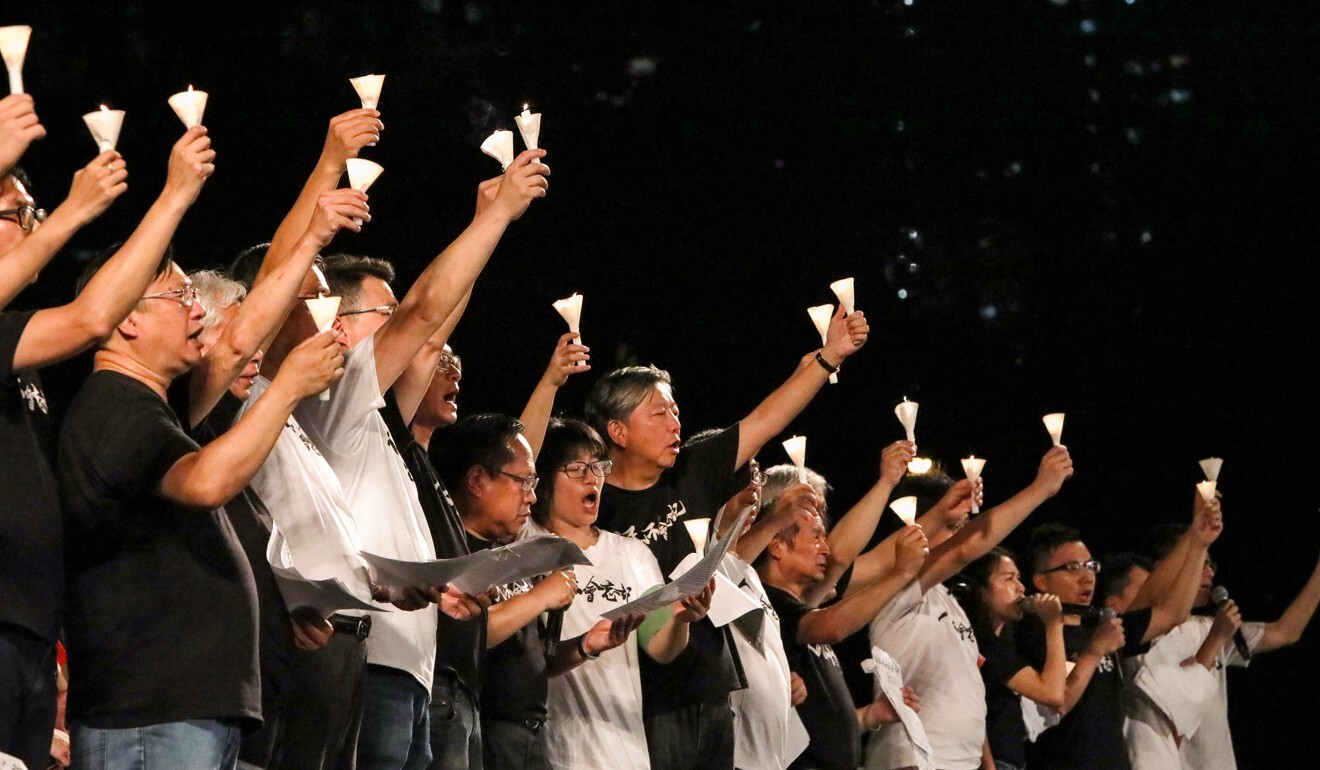
The alliance was among three leading civic groups with decades of strong public support to announce they were folding amid what they characterised as an increasingly oppressive political atmosphere.
Yu attributed the thousands of spoiled or blank Macau votes to anger arising from the disqualifications. If there were any takeaways from the polls, this was one to watch, for the coming elections in Hong Kong, he argued.
“The Macau people are pretty mild in general and they have carried out such a – well, not radical – but rather disrespectful gesture to the authorities and Beijing,” he said. “And Hongkongers have proven to be more daring.”
Record-low voter turnout in Macau – will Hong Kong polls see same fate?
Chinese University political scientist Ivan Choy Chi-keung noted that opposition candidates in Hong Kong had attracted about half of overall votes in past general elections, while centrists received around a tenth of the opposition’s votes. But in Macau, residents who backed opposition hopefuls accounted for just 10 to 20 per cent of votes.
“Traditionally, Hong Kong’s opposition gets more support from their voters than their counterparts in Macau,” he said. “In Macau, there are more voters to be tapped by centrist political parties.”
But he was circumspect in predicting how the Legco polls in December would play out. “One should not look too far as it also depends on who will be allowed to run, whether all opposition candidates will be barred from running and, if not, how many of them will be allowed to run, as well as who they will be,” he said.
Two opposition faces in the fray
Despite the opposition no longer playing a role in governing Hong Kong, authorities have insisted elections should be contested by candidates representing a spectrum of views. The reason for this insistence is obvious: participation from the other side even in a heavily tilted playing field will help confer some legitimacy to a process that has been roundly criticised for quashing democracy in the city.
Tian from Beihang University went a step further to argue that if candidates from outside the pro-establishment camp ended up losing in December, the fault would rest squarely with them. “It is upon them to create a political space of their own,” he said.
The two opposition candidates preparing for the Election Committee polls on Sunday have said they are facing their own challenges, with a vastly different voter base to please.
He described the difficulty of campaigning after the electoral overhaul transformed the voter base. Previously certain subsectors, such as his own for social welfare, were decided by individuals who historically backed the opposition, but those seats will now be returned by corporations or organisations that are overwhelmingly aligned with the establishment.
Previously, to gather feedback ahead of election day, Tik would meet frontline social workers, but he now must reach out to directors or heads of 144 designated groups working in the area that hold the votes. He has already contacted the dozen he knows but must cold-call the rest.
“It is hard to ascertain the political leaning of each voter because I don’t know them,” he said. “For now I can’t judge how much of that factor is at play.”
Spotlight on Hong Kong Election Committee polls
But Tik shrugged off any concerns that his political background automatically meant he would lose.
“It’s a completely new setting and I am sure the pro-establishment side would have to put in a lot of work too,” he said.
His colleague Chow had previously signed a petition opposing the national security law and said he was concerned about the extent that might affect his own chances, but Tik felt his professional track record should speak for itself. “It shouldn’t have a huge impact,” he added.
Chow meanwhile said: “I have been involved in social welfare work for so many years … I hope voters will know that I am not radical.” He claimed Sunday’s elections would be “a test and an indicator”.
“Have the changes perfected the system? Or have they distorted it?” he added.
What next for the opposition?
Whether the two opposition candidates win seats in Sunday’s Election Committee polls, the larger canvas for the camp has all but disappeared. In the vacuum created partly by the mass resignations of the bloc’s lawmakers in protest last November, and then the subsequent arrests of many of its leaders, the pro-establishment camp has tried to be more critical of government policies.
A number of pro-establishment lawmakers, such as Paul Tse Wai-chun, have become more aggressive in grilling the government during Legco sessions.
Tse had earlier said opposition lawmakers would launch “vicious and ferocious” challenges against authorities that left pro-establishment lawmakers no choice but to back the administration rather than break ranks.
“But the floor is now open for us to fulfil our natural role as legislators,” Tse said.
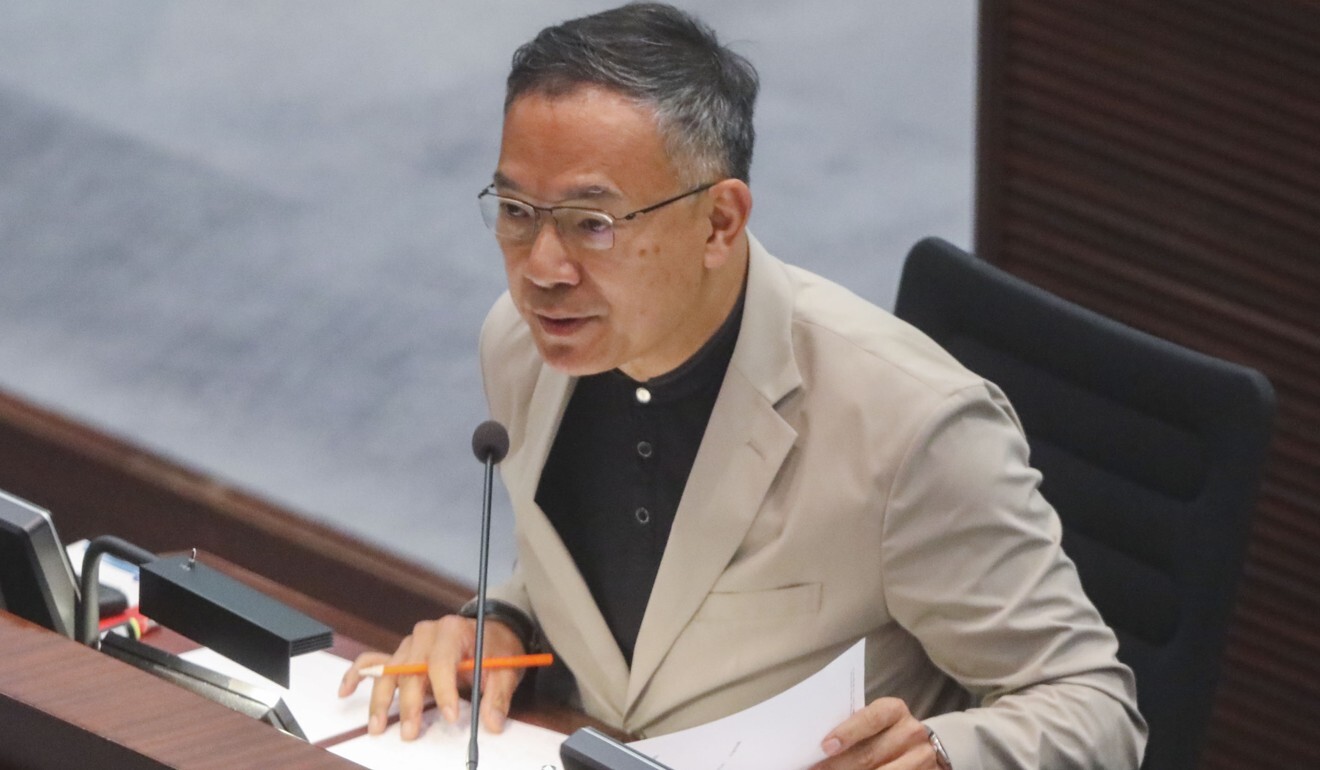
Asked if he now feared losing support from pro-establishment voters if he became too critical, Tse said he was confident voters would appreciate lawmakers fighting for their welfare and rights so long as they were confident this would not challenge the authority of the central government.
But Lo Kin-hei, chairman of the Democratic Party, disagreed. “If they wished to be truly critical, they would not have had to wait until now,” he said.
His party has been stuck between a rock and a hard place. While some of its ex-lawmakers had been remanded in custody awaiting trial over allegations under the Beijing-imposed national security law, this oldest opposition party in the city is also facing mounting pressure to run in elections.
If the party barred members from running, it may well breach the security law, one pro-Beijing veteran recently wrote in a Chinese-language newspaper.
Lo said his party had yet to make a decision but would do so in about two weeks after a members meeting. He was unsure whether Tik and Chow would be able to get onto the Election Committee given the smaller clique of mostly pro-establishment voters, but he expected them to win Legco seats.
“Even if only 20 per cent of opposition voters cast ballots, they would benefit because the vote will not go to, say, the Democratic Alliance for the Betterment and Progress of Hong Kong,” he said, referring to the biggest pro-Beijing party in the city.
Even as the party was still assessing the political situation, there was no running away from the harsh reality that dissenting voices had been severely neutered by the design of the electoral overhaul, Lo noted.
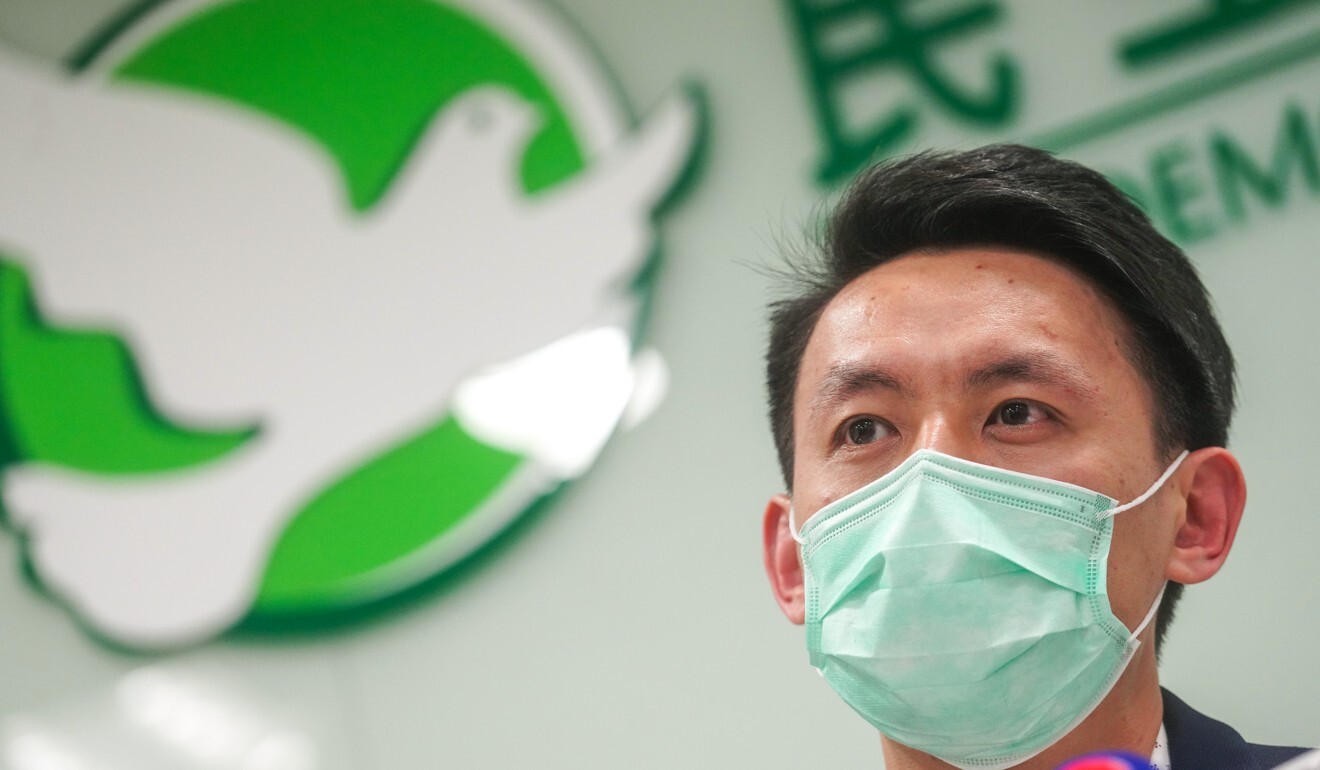
The bleak prospects for Hong Kong’s opposition were sketched out by associate professor Kenneth Chan Ka-lok, a former legislator from the pro-democracy camp, in a recent opinion piece. Writing in the Chinese-language Ming Pao on Monday, he asked whether marginalised political parties that continued to contest elections without any meaningful prospect of winning would ultimately end up as auxiliary parties, similar to what exists in authoritarian or totalitarian regimes. Unlike one-party states, these bodies are legally tolerated but hold no power to keep the ruling politicians in check.
But Tik was hopeful that Hong Kong could walk a different path, with centrists slowly carving out their niches in the city’s politics.
“We believe that we can help strike a more balanced voice in society,” he said. “We are also more critical of the government than the so-called auxiliary parties.”
The first instalment of this three-part series looked at the lead-up to Sunday’s polls and how insiders have noted that two other major elections were likely to follow the same formula of controlled competition.




